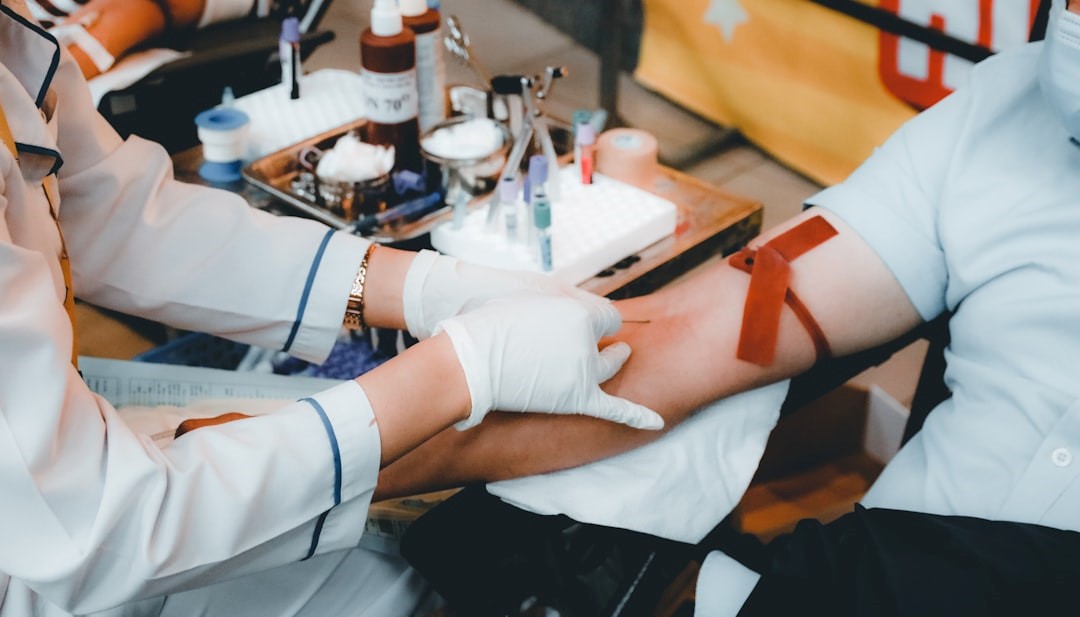Preventive Healthcare
What is Blood Culture Test: Everything You Need To Know
7243 Views
0

A blood culture test is a simple yet crucial medical test that helps identify and treat various infections. Whether you're experiencing an unexplained fever, chills, or any other symptoms associated with infection, a blood culture test can provide valuable insights into your overall health. In this blog post, we'll discuss everything you need to know about the blood culture test, from its purpose and procedure to results and cost.
What is a blood culture test?
A blood culture test is a diagnostic procedure that helps detect the presence of bacteria or fungi in your bloodstream.
It's important to note that not all infections can be detected through a blood culture test. Some types of bacteria do not grow well under normal conditions and may require specialised testing methods.
Why is a blood culture test done?
The primary reason for performing a blood culture test is to determine if there are any harmful microorganisms, such as bacteria or fungi, present in a person's bloodstream. This type of infection can be life-threatening, especially if it goes unnoticed and untreated.
Doctors may recommend this test when an individual has symptoms such as fever, chills, rapid heartbeat, or breathing difficulty—all signs of a possible systemic infection. Patients who have had recent surgery, trauma, or medical procedures may also need this testing to check for sepsis (a dangerous condition where the body's response to infection leads to organ failure).
Blood cultures are also performed before starting antibiotic therapy since antibiotics could mask the initial presentation of bacteremia (bacteria in the bloodstream), making diagnosis difficult.
By identifying which specific microbe(s) are causing the infection through blood culture tests, doctors can prescribe targeted antibiotics for more effective treatment with fewer side effects compared to broad-spectrum antibiotic treatments.
How is a blood culture test done?
The test involves taking a sample of blood and incubating it to encourage any microbes present to grow. Here's how the process works:
Firstly, a healthcare provider will cleanse your skin with an antiseptic solution before inserting a needle into your vein to collect the blood sample. They may need more than one vial of blood, depending on how many tests are being conducted.
The collected specimen is then transferred into sterile containers that contain nutrients that promote microbial growth and are incubated at specific temperatures for several days.
Healthcare providers must take precautions when drawing your blood because contamination can affect test accuracy. The entire process takes about an hour from start to finish, but the wait time for results varies depending on lab schedules and other factors involved.
What do the results of a blood culture test mean?
A negative blood culture test result means that no significant growth of microorganisms was detected, indicating that you do not have an active infection. However, this does not rule out the possibility of an infection entirely. Blood cultures are not able to identify viral infections and certain bacterial infections that are difficult to grow in culture and need additional tests to be diagnosed.
If the blood culture test result is positive, it suggests that there are bacteria or fungi present in your bloodstream, which could be indicative of a bacterial or fungal infection. The laboratory will then identify which specific organism is causing the infection to determine which antibiotics would be most effective for treatment.
Additionally, serial blood cultures may be ordered to monitor the effectiveness of antimicrobial therapy as well as to determine if the body has been cleared of bacteremia (microbial species circulating within the blood).
Interpreting blood culture results requires close communication between physicians and laboratory staff to ensure appropriate diagnosis and prompt initiation of management plans.
How much does a blood culture test cost?
The cost of a blood culture test can vary depending on several factors, such as the type of healthcare provider you visit and your insurance coverage. The average cost ranges from 800 to 1200 for the test alone.
However, this is just an estimate, and additional expenses may apply if further testing or treatment is needed. It's important to check with your healthcare provider or insurance company for specific pricing information.
Are there any risks associated with a blood culture test?
Like any medical procedure, a blood culture test carries some risks. However, the risk associated with this test is minimal and rare. The most common risk of a blood culture test is a superficial infection at the site where the needle was inserted to draw blood.
In very rare cases, more severe complications, such as nerve damage or an allergic reaction, may occur. This usually happens when there's an error in performing the procedure or if the patient has underlying health conditions.
It's important to inform your healthcare provider about any allergies you have before going for a blood culture test. You should also let them know if you're taking any medication that can affect your bleeding tendency.
It's crucial to follow proper procedures and techniques during a blood culture test to minimise these risks. It's equally important to seek prompt medical attention if you experience any unusual symptoms after undergoing this diagnostic exam so that immediate interventions can be made if necessary.
Conclusion
A blood culture test is a crucial diagnostic tool that helps doctors identify the presence of potentially harmful bacteria or fungi in the bloodstream. This test is performed when an infection is suspected, and it can help determine the type of microorganism causing the infection. While this procedure may be uncomfortable for some patients, it's essential to remember that it can provide valuable information needed to make important medical decisions. The cost of a blood culture test varies depending on various factors, such as location and healthcare provider. If you're experiencing symptoms like fever, chills, or fatigue, then consult your doctor immediately. At the end of the day, always prioritise your health above anything else. Don't hesitate to schedule an appointment with Metropolis Labs for a blood culture test if your doctor prescribes one for your infection.













1701259759.webp)









 WhatsApp
WhatsApp